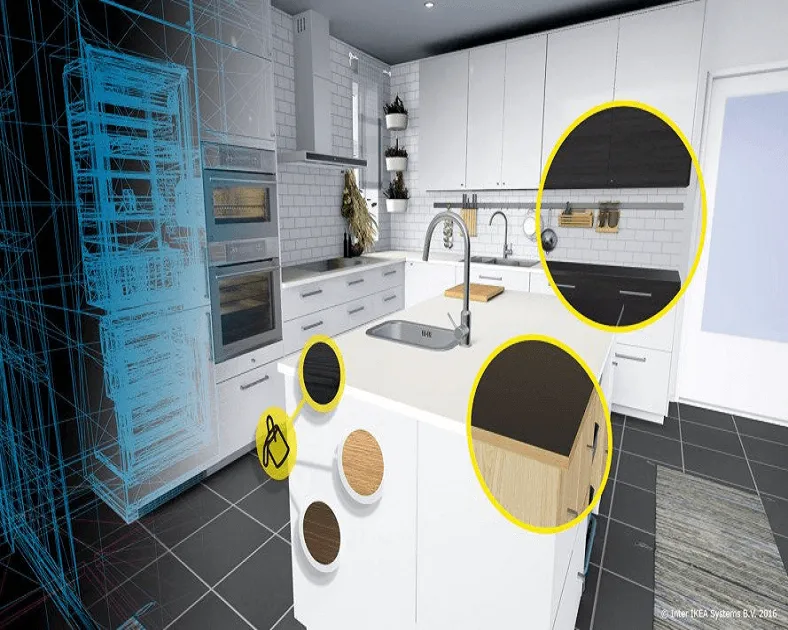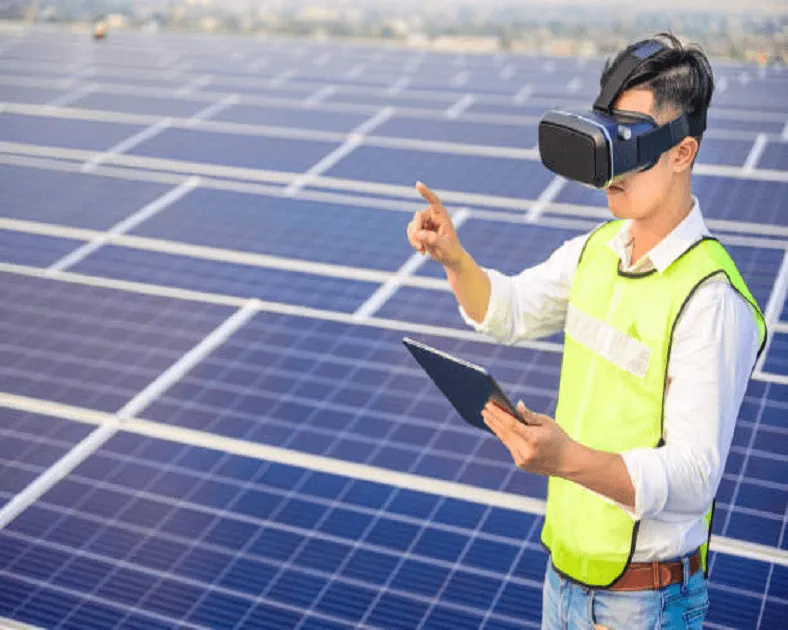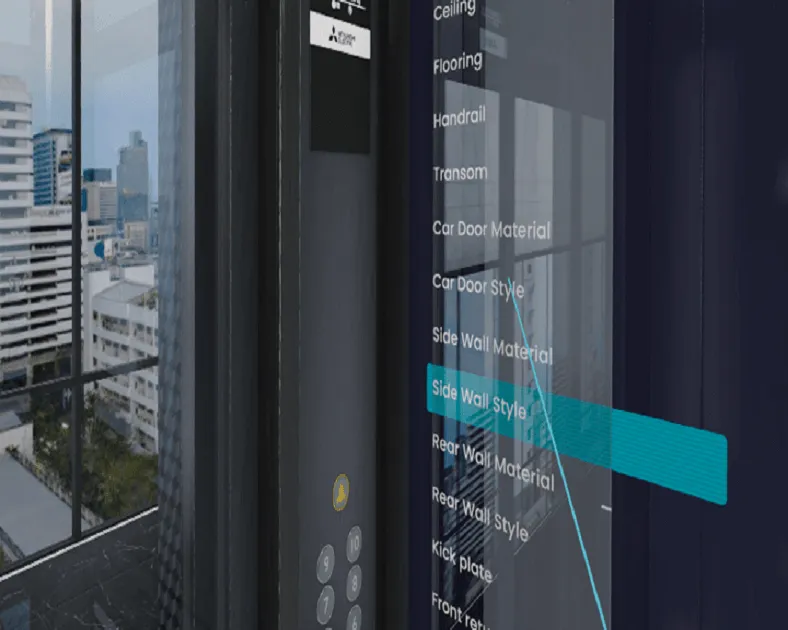VR for Educational Purposes
Virtual Reality for Educational Purposes at Asfan Company
Introduction:
Virtual Reality (VR) technology has emerged as a powerful tool in revolutionizing education, offering immersive and engaging experiences that traditional methods cannot replicate. Asfan Company, a pioneering entity in the educational sector, recognizes the transformative potential of VR and has embarked on a mission to integrate this technology into its educational services. This article delves into the significance of VR in education, its key fields of application, and the myriad benefits of vr it brings, spotlighting Asfan Company's commitment to leveraging VR for enhanced learning experiences schools .
The Significance of Virtual Reality in Education:
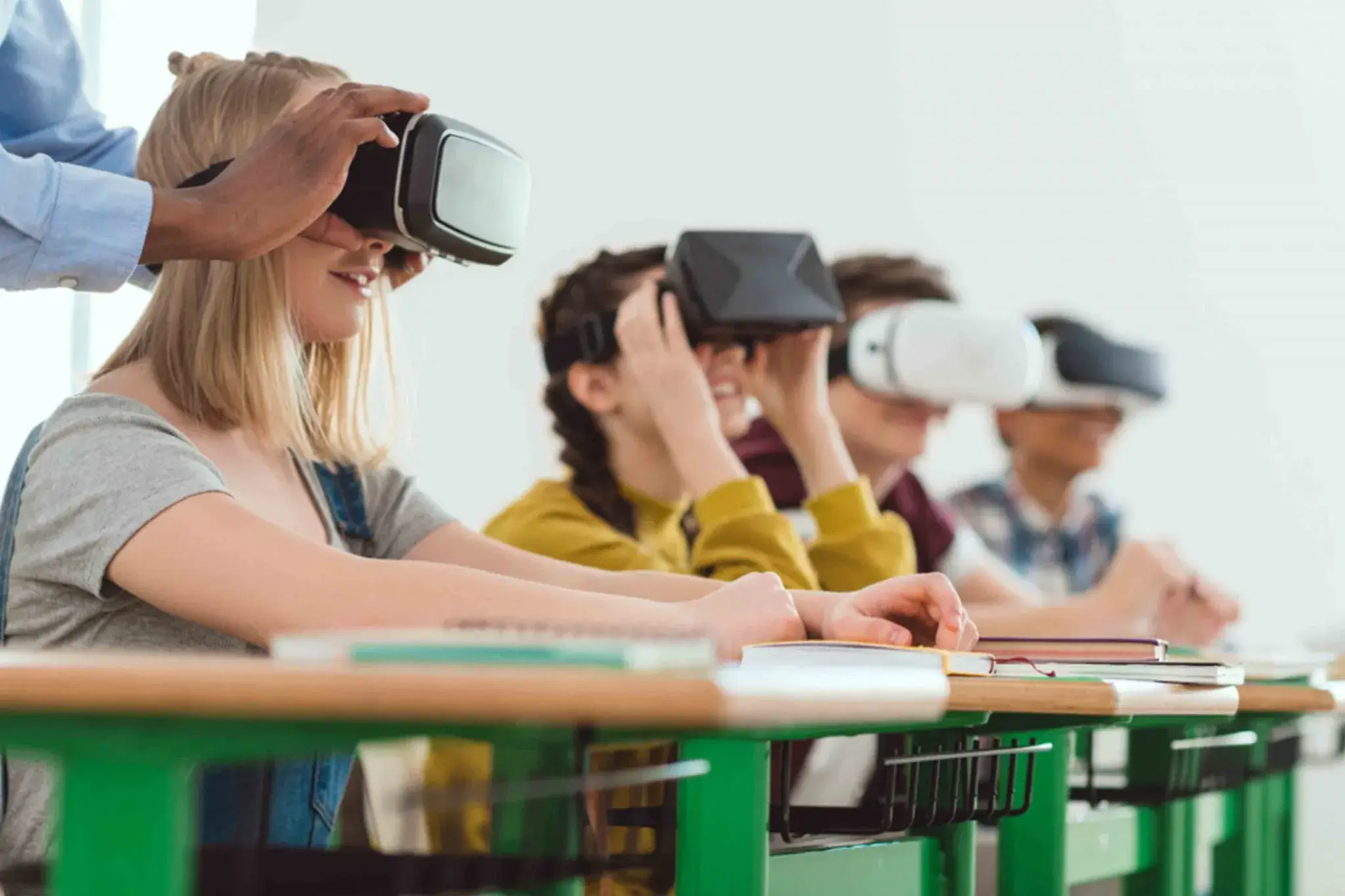
Virtual Reality in education transcends the limitations of traditional learning methods by providing immersive and interactive environments. It allows learners to explore concepts, scenarios, and environments in ways that are not feasible through textbooks or lectures alone. By simulating real-world experiences, VR facilitates deeper understanding, retention, and application of knowledge across various subjects and disciplines.
Key Fields of Application:
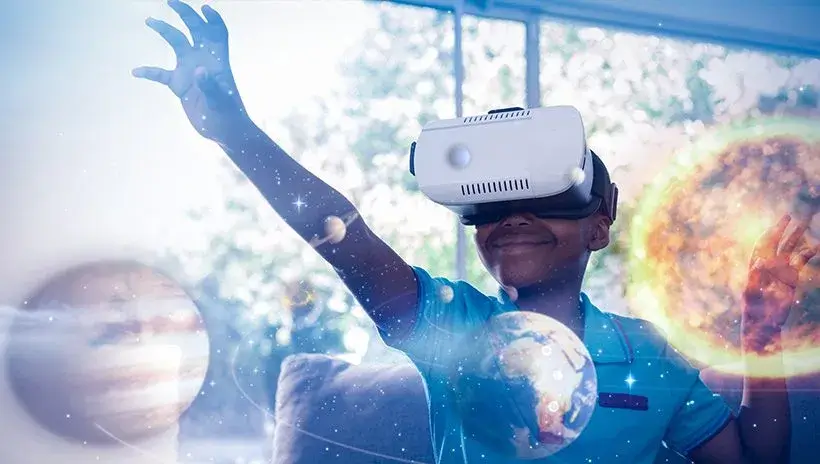
-
STEM Education: VR offers unparalleled opportunities for experiential learning in Science, Technology, Engineering, and Mathematics (STEM) fields. Through VR simulations, students can conduct virtual experiments, explore complex scientific concepts, and engage in interactive problem-solving activities. Asfan Company's VR-enabled STEM curriculum empowers students to grasp abstract theories by visualizing them in a virtual setting, fostering curiosity and critical thinking skills.
-
Medical Training: VR has revolutionized medical education and training by providing realistic simulations of surgical procedures, patient care scenarios, and anatomical structures. Asfan Company collaborates with medical professionals to develop immersive VR modules that enable aspiring healthcare professionals to hone their skills in a safe and controlled environment. From anatomy lessons to surgical simulations, VR enhances medical training by offering hands-on experiences without the risks associated with traditional methods.
-
Historical and Cultural Exploration: Through VR, students can embark on virtual journeys to historical landmarks, ancient civilizations, and cultural heritage sites. Asfan Company's curated VR tours allow learners to step back in time and witness pivotal historical events, explore architectural marvels, and immerse themselves in diverse cultures from around the world. By bringing history and culture to life, VR fosters empathy, cultural appreciation, and global awareness among students.
-
Language Learning: VR provides a dynamic platform for language acquisition, allowing students to practice conversational skills, engage in virtual immersion experiences, and interact with native speakers. Asfan Company's VR language learning programs offer realistic scenarios, such as virtual travel destinations and multicultural settings, where students can apply their language skills in authentic contexts. By combining visual, auditory, and kinesthetic learning modalities, VR accelerates language proficiency and fluency.
Benefits of Virtual Reality in Education:
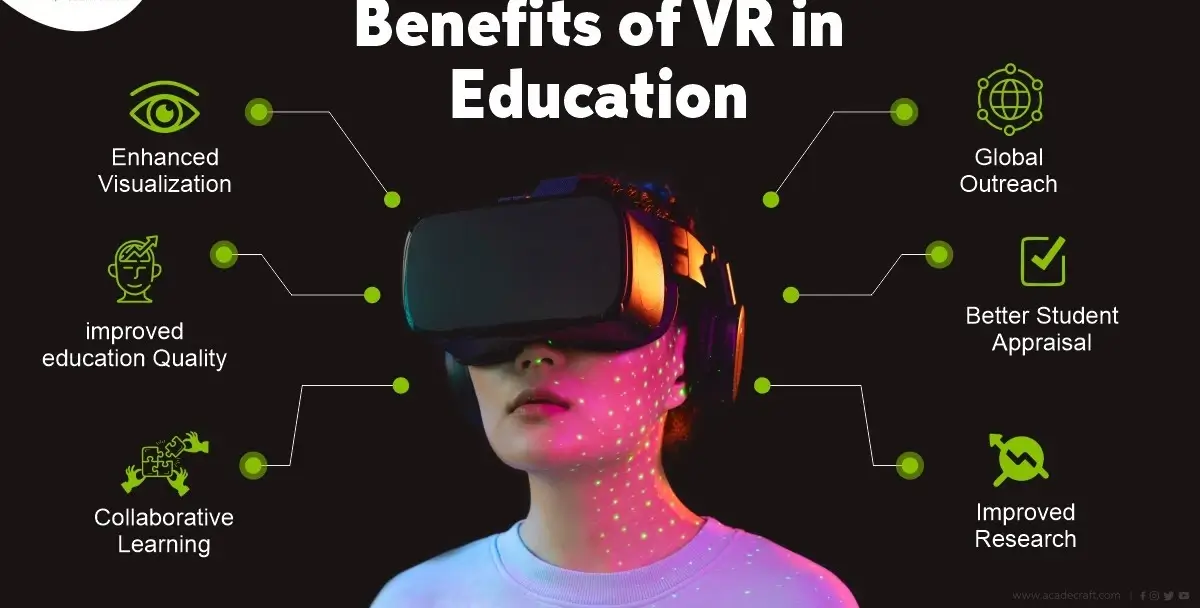
-
Enhanced Engagement: VR captivates students' attention and stimulates their senses, resulting in higher levels of engagement and participation.
-
Experiential Learning: VR facilitates experiential learning by enabling students to actively explore and interact with virtual environments, leading to deeper comprehension and retention of knowledge.
-
Personalized Learning: VR allows for personalized learning experiences tailored to individual learning styles, preferences, and paces, promoting self-directed learning and academic success.
-
Safe Learning Environment: VR provides a safe and controlled environment for students to experiment, make mistakes, and learn from them without real-world consequences.
-
Accessibility and Inclusivity: VR technology can accommodate diverse learners, including those with disabilities or learning differences, by offering customizable settings and adaptive features.
Asfan Company's Commitment to VR-Enhanced Students Education Classroom :
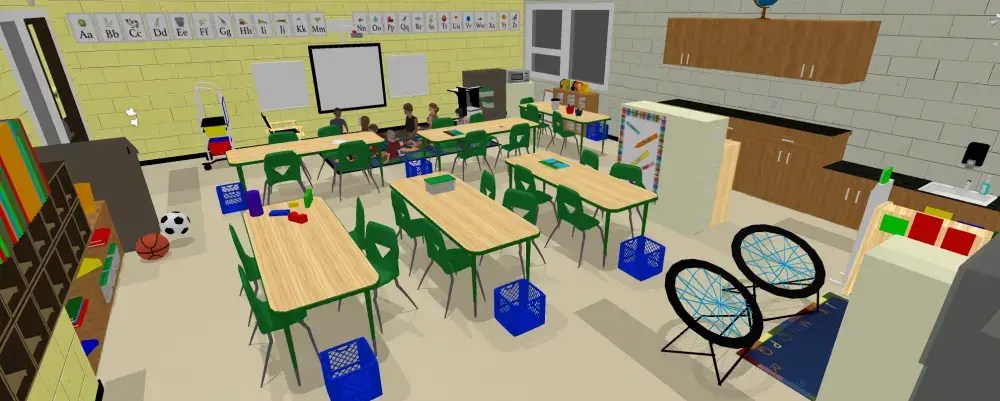
Asfan Company is at the forefront of integrating VR technology into its educational offerings, recognizing its potential to revolutionize learning experiences. By partnering with educators, content developers, and technology experts, Asfan Company develops immersive VR solutions that align with curriculum standards, learning objectives, and pedagogical best practices. Through its innovative approach to VR-enhanced education, Asfan Company aims to empower students with the knowledge, skills, and competencies needed to thrive in the 21st century.
How Effective is VR Learning?
Virtual Reality (VR) learning has demonstrated effectiveness across various domains, offering unique advantages that traditional learning methods often lack. Here are some key aspects highlighting the effectiveness of virtual reality learning:
-
Immersive Experiences: VR provides immersive environments that simulate real-world scenarios, enabling learners to engage with content in a more meaningful and memorable way. Research suggests that immersive experiences enhance knowledge retention and comprehension compared to traditional learning methods.
-
Experiential Learning: VR facilitates experiential learning by allowing students to actively explore concepts, practice skills, and solve problems in a hands-on manner. This active engagement promotes deeper understanding and mastery of subject matter, leading to improved learning outcomes.
-
Engagement and Motivation: VR captivates students' attention and motivates them to participate actively in the learning process. The interactive nature of VR environments encourages curiosity, exploration, and experimentation, fostering a sense of agency and ownership over learning.
-
Personalized Learning: VR technology can be tailored to accommodate individual learning styles, preferences, and abilities. By providing customizable experiences and adaptive feedback, VR enables personalized learning pathways that cater to the diverse needs of learners.
-
Safe Learning Environment: VR offers a safe and controlled environment for students to practice skills, make mistakes, and learn from them without real-world consequences. This risk-free environment promotes confidence, resilience, and self-efficacy, particularly in domains such as medical training and hazardous environments.
-
Collaboration and Social Interaction: VR facilitates collaborative learning experiences by enabling students to interact with peers, instructors, and experts in virtual environments. Through teamwork, communication, and cooperation, students can enhance their interpersonal skills and collective problem-solving abilities.
-
Accessible and Inclusive Learning: VR technology can be designed to accommodate diverse learners, including those with disabilities or learning differences. Features such as customizable settings, adaptive interfaces, and assistive technologies ensure that VR learning experiences are accessible and inclusive for all students.
While VR learning offers significant benefits, its effectiveness depends on various factors, including the quality of content, instructional design, technological infrastructure, and integration into the curriculum. Continued research, innovation, and collaboration are essential to maximizing the potential of VR as a powerful tool for enhancing education in the digital age.
Why VR is the Future of Education?
Virtual Reality (VR) is widely regarded as the future of education due to its transformative potential and numerous advantages over traditional learning methods. Here are several compelling reasons why VR is poised to revolutionize education:
-
Immersive Learning Experiences: VR transports learners to virtual environments that simulate real-world scenarios, enabling them to interact with content in a deeply immersive and engaging manner. This immersion facilitates experiential learning, allowing students to explore concepts, practice skills, and solve problems in a hands-on, interactive environment.
-
Enhanced Retention and Comprehension: Research suggests that immersive experiences in VR can lead to higher levels of knowledge retention and comprehension compared to traditional learning methods. By engaging multiple senses and providing contextualized learning experiences, VR stimulates cognitive processes and reinforces learning in a way that is both memorable and effective.
-
Accessibility and Inclusivity: VR technology has the potential to make education more accessible and inclusive by accommodating diverse learning styles, preferences, and abilities. Features such as customizable settings, adaptive interfaces, and assistive technologies ensure that VR learning experiences can be tailored to meet the needs of individual learners, including those with disabilities or learning differences.
-
Global Collaboration and Connectivity: VR enables students and educators to connect and collaborate in virtual environments regardless of geographical location. This global connectivity expands opportunities for cross-cultural exchange, interdisciplinary collaboration, and peer-to-peer learning, fostering a sense of community and interconnectedness among learners worldwide.
-
Safe and Controlled Learning Environment: VR provides a safe and controlled environment for students to practice skills, experiment with ideas, and make mistakes without real-world consequences. This risk-free environment encourages exploration, creativity, and innovation, empowering students to take risks and learn from failure in a supportive and scaffolded manner.
-
Personalized Learning Pathways: VR technology can be customized to accommodate individual learning styles, preferences, and paces, allowing for personalized learning pathways tailored to the needs of each student. By providing adaptive feedback, real-time assessments, and customized learning experiences, VR empowers learners to progress at their own pace and maximize their potential.
-
Preparation for 21st-Century Skills: VR equips students with the knowledge, skills, and competencies needed to thrive in an increasingly digital, interconnected, and complex world. By fostering critical thinking, problem-solving, collaboration, communication, and creativity, VR prepares students for success in the 21st century workforce and society.
In conclusion, VR represents the future of education by offering immersive, interactive, and personalized learning experiences that transcend the limitations of traditional methods. As technology continues to evolve and VR becomes more accessible and affordable, its potential to revolutionize education and empower learners around the globe will only continue to grow.
Conclusion:
Virtual Reality holds immense promise for transforming education by providing immersive, interactive, and engaging learning experiences across various fields and disciplines. Asfan Company's dedication to harnessing VR technology underscores its commitment to delivering innovative and effective educational solutions that prepare students for success in an increasingly complex and interconnected world. By embracing VR, Asfan Company paves the way for a new era of learning that is immersive, inclusive, and impactful.
Reference.
Explore More Projects
We welcome your questions, do not hesitate to contact us
- Create virtual reality and augmented reality experiences at the best prices
- Equipping engineering laboratories with the best equipment
- Virtual tours with 360° technology and also feature that you can see them through just one link
- Create virtual reality and augmented reality experiences at the best prices
- Equipping engineering laboratories with the best equipment
-
Virtual tours with 360° technology and also feature that you can see
them through just one link

